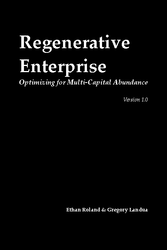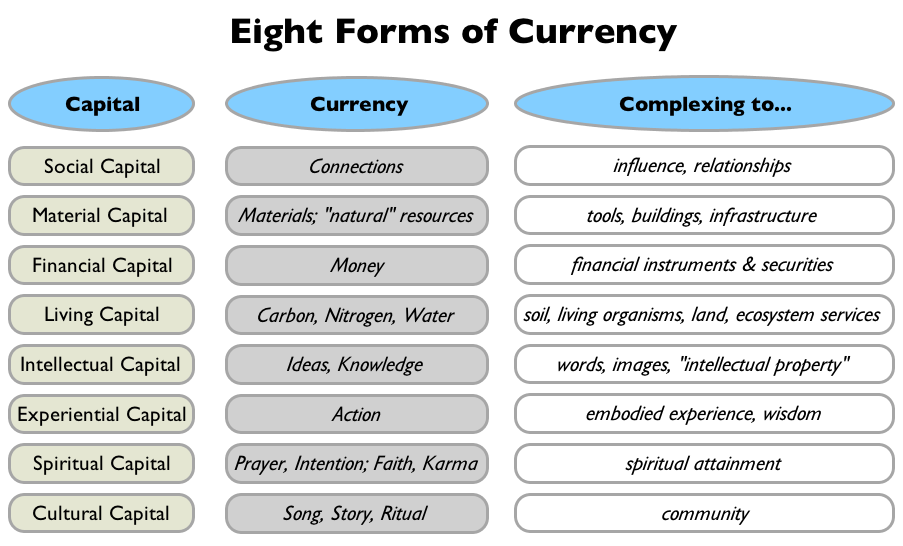


|
Commenced:
|
01/11/2013 |
|---|---|
|
Submitted:
|
29/11/2013 |
|
Last updated:
|
07/10/2015 |
|
Location:
|
Åsen 20, Västra Ämtervik, Sunne, Varmland, SE |
|
Website:
|
www.ridgedalepermaculture.com |
|
Climate zone:
|
Cold Temperate |
(projects i'm involved in)
Back to ridgedale PERMACULTURE
Project: ridgedale PERMACULTURE
Posted by Richard Perkins about 11 years ago

To celebrate the beginning of our new Permaculture project & enterprise we thought is would be perfect to give away a copy of Ethan Roland & Gregory Landau's new book Regenerative Enterprise. I first met Ethan whilst working in Thailand, then again during my time at Gaia University in California, where Gregory also studied.
Globally we have spent a huge amount of resources, energy and money wreaking havoc on soil, ecosystems and ultimately our own health, and we are going to have to spend a lot more to restore it all. But as Ethan & Gregory put it, "It is no longer acceptable to create financial profits by extracting the foundational living wealth of our lands and waters. Enterprises need a new model with which to interpret the world, and a new process for whole-systems design and decision-making."
Money is still largely a contentious issue in the Permaculture world it seems, and as a newly establishing farm & education project in a country where the cost of living and taxation is amongst the highest in the world designing for multi- capital abundance is crucial. There's a real false sense of security in a country like Sweden (which a lot of people are not aware derives a great deal of income from a booming arms trade) and the high standard of living & lack of perceived fragility lends to a certain degree of inertia in implementing resilient and designed responses here as far as we can see.

Having developed a successful business committed to the benefit of all over the years we have always supported others to look at how to apply regenerative design to their economy, and have constantly been adapting and innovating in our own work to mimic ecosystemic processes. We like to show people how PermacultureEthics & Principles can equally be applied to money & business to create mutually beneficial functional interconnections. Win, Win, Win's you might say.
What we appreciate about Ethan & Gregory's work is the skillful and eloquent effort to define the difference between degenerative, sustainable, and regenerative systems. The book articulates the four factors of a regenerative enterprise, and the principles for designing regenerative enterprise ecologies. Having defined 8 clear forms of capital, the authors' articulate the multiple forms of capital with which we transact every day, and opens the door for an evolutionary approach to economics and profits.
Want to get a copy of this ground- breaking book and start designing multi- capital abundance into your life & Permaculture work? Comment here on how you think you would benefit from a copy and we will pick a lucky winner at the end of the week (6th Dec) and post you a copy!
You must be logged in to comment.

Note: The various badges displayed in people profiles are largely honesty-based self-proclamations by the individuals themselves. There are reporting functions users can use if they know of blatant misrepresentation (for both people and projects). Legitimacy, competency and reputation for all people and projects can be evidenced and/or developed through their providing regular updates on permaculture work they’re involved in, before/after photographs, etc. A spirit of objective nurturing of both people and projects through knowledge/encouragement/inspiration/resource sharing is the aim of the Worldwide Permaculture Network.
 |
MemberA member is a permaculturist who has never taken a PDC course. These cannot become PDC teachers. Members may be novice or highly experienced permaculturists or anywhere in between. Watch their updates for evaluation. |
|---|---|
  |
Permaculture MatchmakerOne of these badges will show if you select your gender and the "I'm single, looking for a permaculture partner" option in your profile. |
 |
PDCPeople who claim to have taken a Permaculture Design Certificate (PDC) course somewhere in the world. |
 |
PDC VerifiedPeople who have entered an email address for the teacher of their PDC course, and have had their PDC status verified by that teacher. Watch their updates for evaluation. |
 |
PRI PDCPeople who’ve taken a Permaculture Research Institute PDC somewhere in the world. |
 |
PDC TeacherPeople who claim to teach some version of PDC somewhere in the world. |
 |
PRI TeacherWith the exception of the ‘Member’ who has never taken a PDC, all of the above can apply to become a PRI PDC Teacher. PRI PDC Teachers are those who the PRI recognise, through a vetting board, as determined and competent to teach the full 72-hour course as developed by Permaculture founder Bill Mollison – covering all the topics of The Designers’ Manual as well as possible (i.e. not cherry picking only aspects the teacher feels most interested or competent in). Such teachers also commit to focussing on the design science, and not including subjective spiritual/metaphysical elements. The reason these items are not included in the PDC curriculum is because they are “belief” based. Permaculture Design education concerns itself with teaching good design based on strategies and techniques which are scientifically provable. PRI PDC Teachers may be given teaching and/or consultancy offerings as they become available as the network grows. |
 |
Aid WorkerThe individual with this badge is indicating they are, have, or would like to be involved in permaculture aid work. As such, the individual may or may not have permaculture aid worker experience. Watch their updates for evaluation. |
 |
ConsultantThe individual with this badge is indicating they are, have, or would like to do paid permaculture design consultancy work. As such, the individual may or may not have permaculture consultancy experience. Watch their updates for evaluation. |
 |
Community ProjectCommunity projects are projects that help develop sustainable community interaction and increase localised resiliency. |